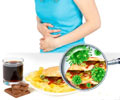- Listeria - (https://www.foodsafety.gov/poisoning/causes/bacteriaviruses/listeria/)
- Listeria infection - (http://www.mayoclinic.org/diseases-conditions/listeria-infection/basics/definition/con-20031039)
- Listeria (Listeriosis) - (https://www.cdc.gov/listeria/)
What is Listeria Infection or Listeriosis?
Listeria infection or listeriosis is a food borne illness caused by eating food contaminated with the bacterium, Listeria monocytogenes.
According to the Centers for Disease Control and Prevention (CDC), an estimated 1600 people in the United States get listeriosis each year. Around 260 of those infected individuals succumb to the infection. The infection is more severe in the case of newborn babies, children, pregnant women and in individuals whose immunity is compromised.
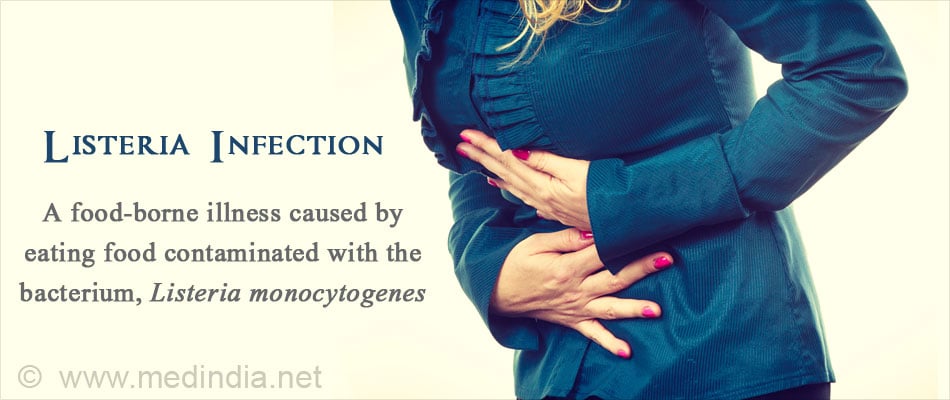
When pregnant women get infected, they only exhibit a mild case of the illness but the same could end up being a serious infection in the newborn baby. The best way for susceptible individuals to avoid getting the disease is by avoiding certain foods and by following food-safety guidelines.
What Causes Listeriosis?
The main causative agent of listeriosis is the bacterium Listeria monocytogenes.
Listeria is ubiquitous and is found in soil and water and animals like poultry and cattle. It is usually present in raw milk and other dairy products. The main way by which we can acquire Listeria is by eating food that is contaminated by it. Listeria does not spread from person to person although it can be transmitted from mother to fetus.
Listeria can thrive in cold temperatures and the only way to kill these bacteria is cooking and pasteurization. Foods like cold meats, cold salads with fruits and vegetables, cold seafood, semi-soft cheese and non-pasteurized dairy products are carriers of this infection.
What are the Symptoms of Listeriosis?
People with a strong immune system exposed to listeria usually have mild symptoms like light fever, headache, diarrhea and nausea.
However, people with high risk present themselves with serious symptoms like:
- Sudden high fever
- Nausea and vomiting
- Diarrhea
- Headache
- Body ache
- Stiff necks
- Seizures
- Mental confusion leading to unconscious states
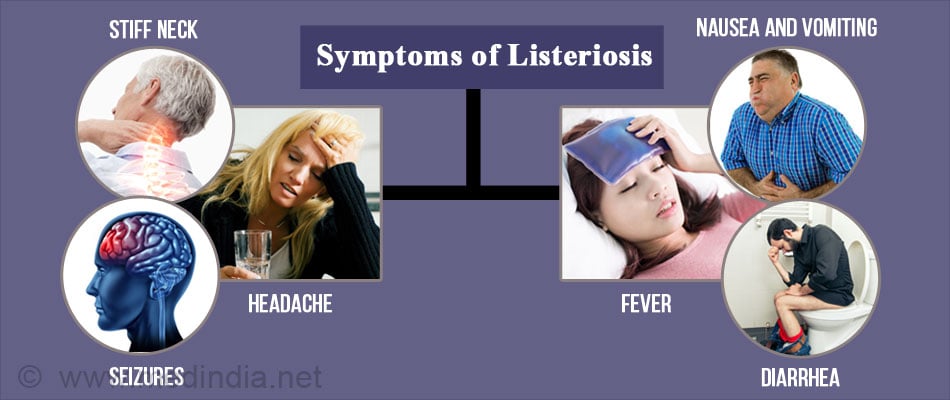
People who become unconscious must be rushed to a medical emergency center without delay.
What are the Risk Factors of Listeria Infection?
People who have weak immune systems like in the case of
- Pregnant women
- Newborn babies
- Diabetics
- People older than 65 years
- HIV infected patients
- Kidney disease or liver disease
- Patients undergoing Chemotherapy
- People who take medications like prednisone, certain rheumatoid arthritis drugs or immunosupressant drugs
Advertisement How do you Diagnose Listeriosis?
A blood test is the basic test for Listeria. The blood is cultured to check for the presence of Listeria monocytogenes.
In some cases, it may be necessary to get a sample of spinal fluid or urine. This fluid is then cultured to test for presence of the bacteria.
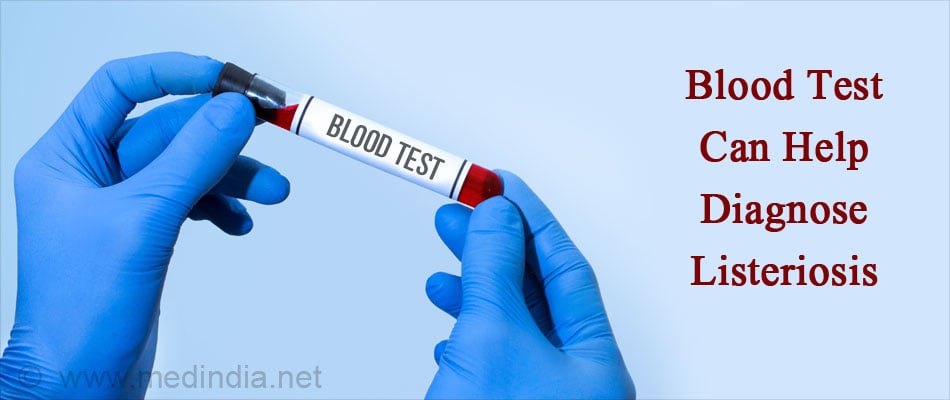
What are the Complications of Listeria Infection?
Though listeria is not a life-threatening condition, it can become serious in some cases.
- For pregnant mothers, a mild case of listeriosis can lead to severe complications to the fetus like miscarriage, premature birth or stillborn babies.
- Babies affected with Listeria may develop serious respiratory complications and have to be put on a 24-hour watch until the infection is treated.
- Untreated listeria infections can lead to septicemia where the bacteria enter the blood stream and can cause brain damage.
- In some cases, listeria infections progresses to inflammation of the membranes and fluid surrounding the brain (meningitis).
In all such cases, an intensive care unit (ICU) admission is a must with strict surveillance for further complications.
What is the Treatment for Listeriosis?
Listeriosis treatment depends on the severity of the symptoms.
- Mild listeriosis usually goes away on its own with a brief period of rest.
- Severe symptoms require oral antibiotics ranging from 5-10 days. Prompt antibiotic treatment to the mother during pregnancy can stop the spread of infection to the baby. If the newborn is diagnosed with a Listeria infection, they can be given a combination of antibiotics.
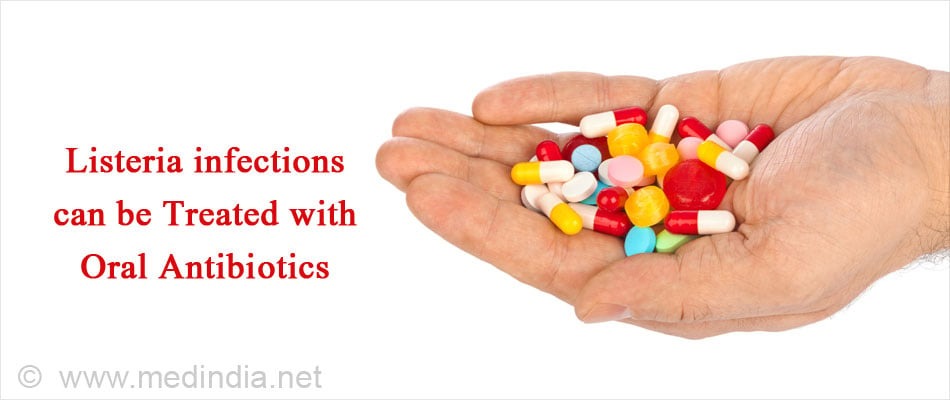
- In cases where the person has seizures or has lost consciousness, hospital admission is required to treat for dehydration. The person may also require intravenous (IV) antibiotics.
How do you Prevent Listeriosis?
1. Listeriosis can be best prevented by eating hot, cooked foods, washing hands and raw vegetables thoroughly and by avoiding raw, uncooked, non pasteurized dairy products.
2. Pregnant women and people with compromised immune systems must follow these guidelines:
- Eat only cooked and hot foods
- Eat raw fruit or vegetables only when thoroughly washed with salt water or potassium permanganate
- Cook meat and poultry thoroughly
- Avoid cold cut meats and sea foods
- Avoid eating raw cheese and salads
- Avoid unpasteurized dairy products
- Avoid canned foods
3. Controlling Outbreaks
There may be certain periods when a lot of people come down with a listeria infection. In such cases, public health departments must swing into action to control the outbreak and spread awareness.
During such times, whole genome sequencing is useful to detect the strain of bacteria affecting the community. This also provides insights into the type of antibiotic to be used for treatment.



